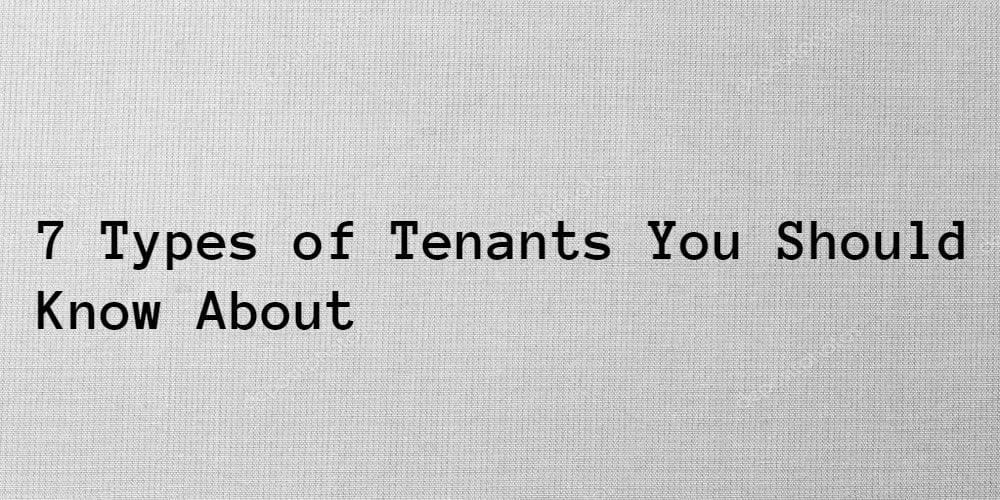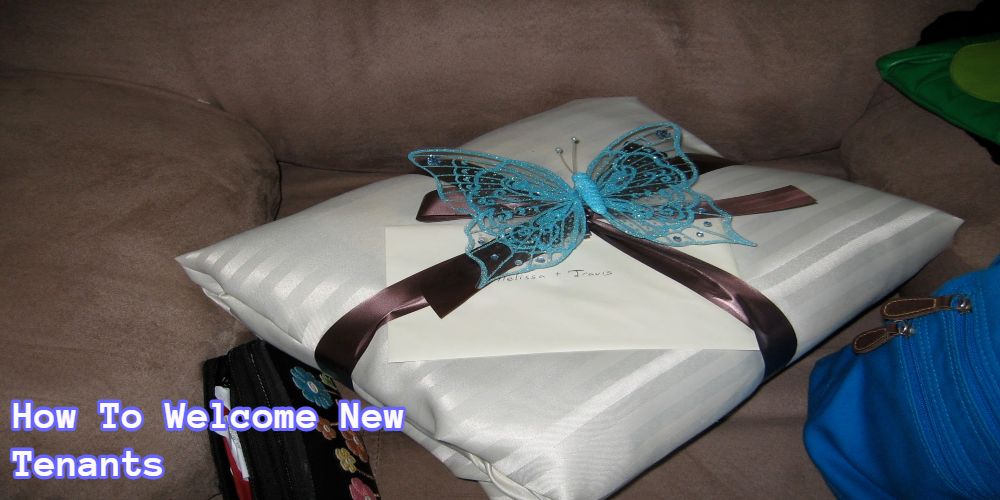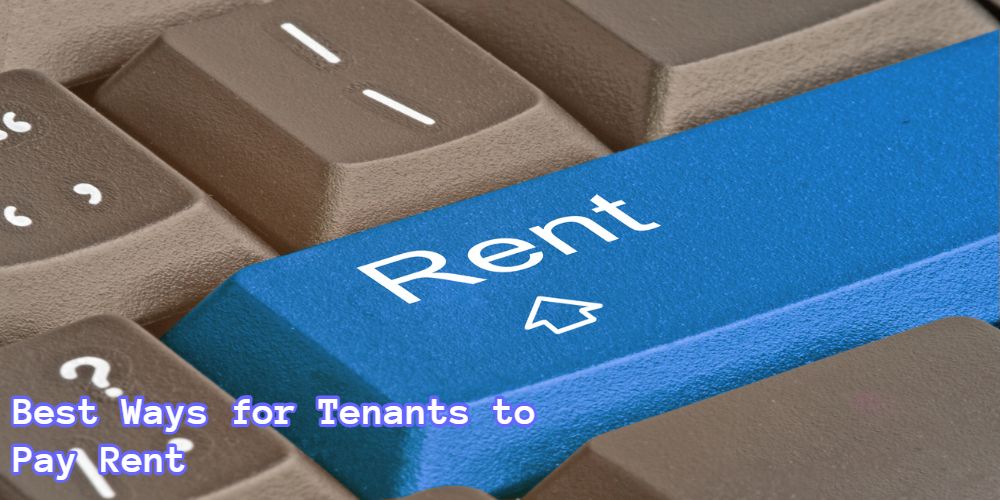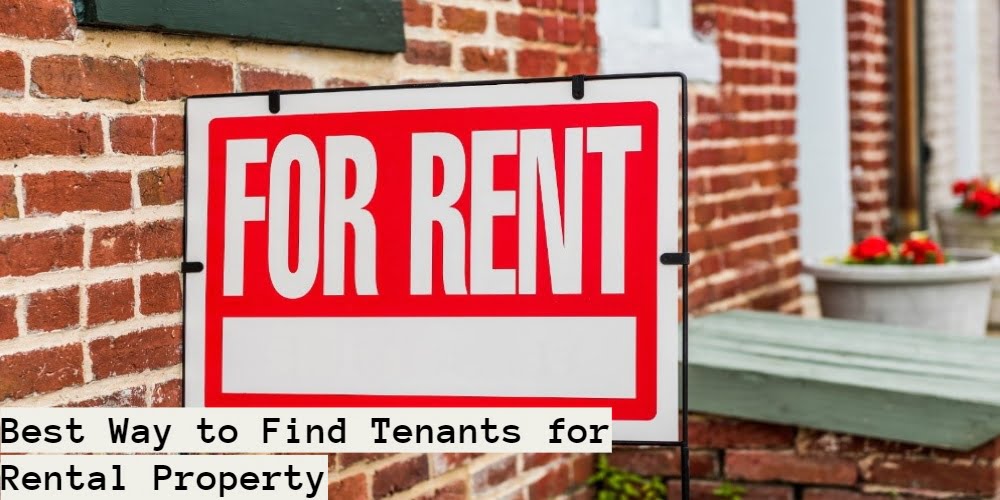Last Updated on October 18, 2021 by Kelvin Nielsen
Problem tenants are every landlord’s worst nightmare. And understandably so, they can cause you a lot of headaches. From defaulting rent payments to paying late to damaging your property, problem tenants can significantly weigh you down.
But, sadly, they are almost an inevitability in a landlord’s career. No matter how thorough your tenant screening process is, one will find a way to slip through every once in a while.
Fortunately, they can’t push you to the wall if you master effective ways to deal with them. And, certainly, knowing the kind of tenants to expect can be a big headstart for you as a landlord. In today’s article, we’ll take a look at the types of tenants that you are likely to encounter in your landlording career.
1. Late and partial rent payers
Late-paying tenants and partial payers can give you more trouble than you might think. Month after month, they will approach you with loads of excuses as to why they are unable to pay on time.
But inasmuch as some may have legitimate reasons, your rental property is a business, and giving late-paying tenants leeway beats your investment’s purpose.
There are many ways to deal with such tenants:
- Enforce a late fee. This can be anywhere between $50 and $100 and can increase with each day it’s late.
- Make it clear (in the most polite way possible) during the signing of the lease that late and partial payments are unacceptable.
- Offer more convenient ways of paying rent. Some tenants don’t pay rent on time simply because they are too lazy to drop off the banker’s cheque. They can be punctual if you enable digital options such as credit or debit cards.
- Send reminders. You can also remind them of their obligation by sending a polite email or text message when rent is almost falling due.
- Hire a property management company. They’re certainly better at it than you!
2. Property damagers
This category of tenants will cause damage that’s beyond normal wear and tear. They’ll wreck anything they come across including doors, sinks, faucets, and cause holes and burns on the walls and flooring. And the worst part, this will not be known to you until the tenant has moved out and is no longer reachable.
Now, you can deal with this type of tenants in the following ways:
- Conduct inspections routinely. Every month, give your property a walk-through to uncover any damage that might have been done. Make sure to take a photo of each occurrence and file it for future reference. But make sure to observe local laws on landlord entry. Remember, your tenant has a right to live in privacy. Most states require landlords to provide their tenants with a notice of at least 24 hours prior to entry.
- Collect security deposits. You shouldn’t allow any tenant in before they pay the security deposit. Should they damage anything, the deposit will cover the repairs at the end of the lease. Make sure to check up on local laws in regards to security deposit limits.
- Include rules regarding property damage in the lease agreement. Make it clear in the lease agreement that tenants will be responsible for fixing any damages they cause.
Some tenants will also ‘improve’ their rented house by painting afresh or adding some shelving. This, too, can be considered damage. There’s a possibility that you had stated on the lease that tenants should leave the house in the condition they found it in. So, in such a case, they will have to cover the repainting cost. If they don’t and move out, you may have a right to deduct the appropriate costs from their security deposit.
For negligent damage, request the tenant, through writing, to address it. If it’s something they can’t handle, have your maintenance team work on it then send them the bill. You’ll be at liberty to kick the tenant out should they refuse to handle the damage or compensate you the repair costs.
3. The hospitable hosts
You’re also likely to come across tenants who’ll always have guests over the weekend. While having a friend sleep over for two nights is no big deal, keeping chaotic guests for a month is. It not only bothers other tenants but also raises the probability of property damage.
Deal with such tenants by:
- Regularly inspecting your property to see who’s living where and the living conditions.
- Limiting the number of guests allowed in the lease.
- Limiting the number of nights guests should spend in the rented house.
4. The constant complainers
A tenant is entitled to a speedy response from their landlord should there be a burning issue. However, some will be on your neck for no tangible reason. If it’s not a light bulb that requires swapping, it’s the kitchen drawer getting a bit sticky – they’ll make call after call complaining over little things they can simply handle by themselves.
While it’s good practice to respond to your tenants’ requests promptly, you are not obligated to act instantly any time they call.
5. The pet lovers
It’s no secret that Americans love pets. And, understandably so, allowing pets in your rental property can go a long way in increasing your prospective tenant pool. However, letting tenants have pets that are poorly (or not at all) trained can cause you headaches.
It could be a dog that can’t stop chewing or is obsessed with scratching walls and doors. Besides this, a cat can be peeing any time it feels like it, staining the floor with indelible, yellow marks. It might not seem like a big deal but this might even cost you a tenant in the long run.
The following tips can help you handle the pet-loving tenants:
- Come up with a pet policy that restricts the number as well as the size and breed of pets allowed.
- Ask for a pet deposit that will cover any damages caused by the pet.
- Inspect regularly for any damages caused by pets.
6. The outlaws
You can always expect law-breaking tenants in your rentals. As if it’s their property, they will grow marijuana, deal and abuse narcotics, and be rowdy while getting drunk on your front lawn. These are tenants who you shouldn’t hesitate to evict.
In the case of narcotics dealing or violence, calling the police is always the best resort. A tenant who doesn’t fear breaking the law isn’t only a threat to your property but also to you and the neighbors. Make haste to get them out of the picture before they engage you in their whims!
7. The Dream Tenant
Every landlord dreams of renting to a great tenant. The sort that will, among other good things, pay rent on time, care for the unit, and notify you when maintenance issues come up.
And while landing a dream tenant isn’t always easy, it isn’t exactly rocket science either. You just have to make sure that you have a thorough tenant screening process in place. Always be thorough when checking for things such as a prospective tenant’s:
- Level of income
- Creditworthiness
- Rental background
- Criminal history
- Employment status
Doing this every time you are qualifying tenants will increase your chances of landing the right tenant.
Tenants are created differently. While there are a ton of ways to handle problem tenants, you don’t have to deal with one if you don’t take one. Always screen tenants thoroughly before letting them in.

Hi, I’m Kelvin Nielsen, an experienced landlord and accomplished real estate lawyer. My focus is on answering your questions about renting in the hopes of making your life as a renter or a landlord a bit easier.





